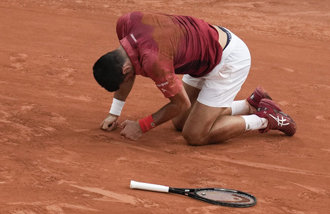N. Korea's capricious actions at Asian Games are not surprise
N. Korea's capricious actions at Asian Games are not surprise
Posted October. 04, 2023 08:02,
Updated October. 04, 2023 08:02
The behavior and actions of the North Korean delegation at the Hangzhou Asian Games may appear unfamiliar compared to the unity displayed by North and South Korean athletes at the 2018 Jakarta-Palembang Games in Indonesia. During the 2018 Games, they displayed happiness, hugging each other while competing as a unified team. However, over the past five years, there has been a noticeable change. North Korean athletes, who earned silver medals in shooting, were reluctant to take pictures with our athletes on the podium. The North Korean women's basketball players, who once considered their South Korean counterparts as sisters and brothers, now exhibited coldness. A North Korean team official even requested that reporters refer to the team by its official name. Simultaneously, in broadcast videos meant for North Korean viewers, they referred to us as 'puppets.'
The recent change in North Korea's behavior and posture should not be a source of disappointment, as it appears to be a deliberate strategy. It is a form of 'defamiliarization' aimed at erasing the image of North Korea's cooperation with South Korea during the previous competition held five years ago, which coincided with North Korea-U.S. negotiations. This change emphasizes the division between South and North Korea in the Asian Games, drawing international attention to the tensions on the Korean Peninsula. Requesting that South Korea use the official name of the country instead of 'North Korea' is a tactic meant to create a sense of intimidation and make people see themselves as 'strangers' rather than as the same people.
North Korea's recent unpredictable actions are accompanied by unchanging intentions. During the United Nations General Assembly on September 26, Secretary Kim In Chol of the North Korean Permanent Mission to the United Nations made a statement, saying, "The dog barks, but the caravan moves on. We will respond firmly to any threats and carry out the necessary actions." This statement was a threat indicating that North Korea would persist in its development of nuclear weapons and ICBMs. The phrase "even if the dog barks" was previously used by Kang Song Ju, North Korea’s representative, in 1993 during negotiations with the U.S. representative Robert Gallucci regarding North Korea’s withdrawal from the Nuclear Non-Proliferation Treaty (NPT). It resurfaced in 2017 during the peak of tensions between North Korea and the U.S. when North Korea conducted nuclear tests and ICBM launches. At that time, then-U.S. President Donald Trump referred to North Korean leader Kim Jong Un as "rocket man" and threatened to "completely destroy North Korea." In response, North Korean Foreign Minister Ri Yong Ho retorted, "There is a saying that the procession goes on even if the dogs bark. If you were thinking of scaring us with barking dogs, you were just dreaming."
North Korea's three-decade old persistent stance, encapsulated by sayings such as "even if the dog barks, the carriage moves on," has been enabled by the changing policies of South Korea and the United States toward North Korea, which have shifted with each change of leadership. With the possibility of the return of former President Trump, who values the ROK-U.S. alliance in monetary terms, in the U.S. presidential election next November, there may be a hidden reason why North Korea is trying to return the Korean Peninsula to the state of tension it experienced in 2017 by sticking closely with Russia. While the term "change in words and actions" is often used to describe the beautiful transformation of a tiger's fur in the fall, North Korea's willingness to abandon even its own people when necessary is far from beautiful.
Yong Park parky@donga.com
Headline News
- 22nd National Assembly begins amid boycott by People Power Party
- S. Korea records per-capita GNI of 36,000 dollars, surpassing Japan
- N. Korea pulls railway sleepers on Donghae Line
- Act-Geo founder Dr. Abreu to visit Korea for press conference
- Benefactor donates 10 billion won for Korea University’s Sejong campus







